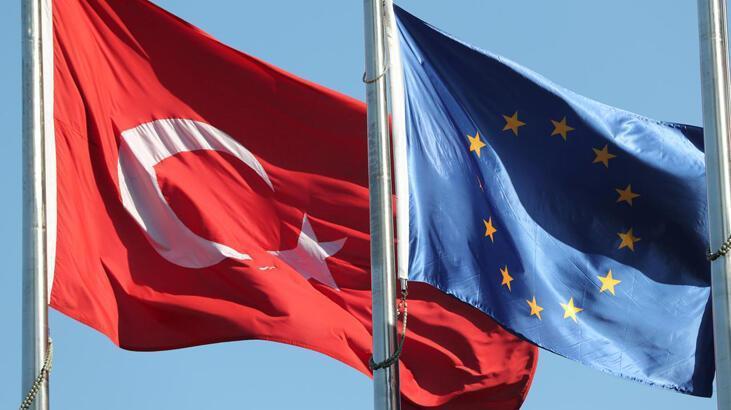Turkey says EU conclusions on east Med partially positive
ANKARA

Turkey has described the EU’s conclusions on the months-long tension over hydrocarbon activities in the eastern Mediterranean that pit Turkey and Greece and Greek Cyprus against each other as partially positive, but stressed that Brussels should impose pressure on Greek Cyprus to recognize the rights of Turkish Cypriots as equal owners of the island.
“While some of the decisions taken about our country at the Special Summit of the EU’s heads of states and governments contain positive elements, many of them do not correspond to realities,” read a statement issued by the Turkish Foreign Ministry on Oct. 2 in reaction to the EU communiqué following the special summit in Brussels.
“The text is an example of how Turkey-EU relations have been taken hostage by the Greek and Greek Cyprus duo while some of the EU countries are trying to improve ties with our country,” it said.
The EU’s conclusions were released early Friday after 27 EU leaders discussed the situation in the eastern Mediterranean and ties with Turkey in the aftermath of the tension between Ankara and Athens.
The EU welcomed the recent deal between the two neighbors to start technical talks for the resolution of the problems but urged Turkey to avoid unilateral actions in the region.
EU Council President Charles Michel suggested that the EU will follow a two-way approach to Turkey and will open a positive agenda on ties should Turkey not violate the EU member states’ maritime shelf. EU Commission head Ursula von der Leyen stressed ties with Turkey will be revised in December as all options including imposing measures will be on the table.
Underlining Michael’s words, the communiqué stated, “The Council has agreed to launch a positive political EU-Turkey agenda with a specific emphasis on the modernization of the Customs Union and Trade Facilitation, people to people contacts, high-level dialogues and continued cooperation on migration issues in line with the 2016 EU-Turkey Statement.”
EU does not mention Turkish Cypriots
The Turkish statement underlined the fact that the EU decisions did ignore the existence of the Turkish Cypriots and their rights on the hydrocarbon reserves, stressing once again that the interlocutor of the Greek Cypriots will remain to be the Turkish Cypriots until the Cyprus problem will be solved.
“That’s why the EU should make a call to the Greek Cypriots for talks with Turkish Cypriots and not to Turkey,” it said, adding Turkey will continue its hydrocarbon activities until a mechanism between the two communities of the island on how to share the revenues will be established.
Call for int’l conference a positive move
Turkey said the EU’s reference on convening an international conference for the eastern Mediterranean is also a positive development.
“We sincerely wish our relations with the EU are in line with our membership perspective in all the fields and in a way serve our mutual interests. We have always been in favor of dialogue and de-escalation. We have lent full support to those who exerted efforts for dialogue as we responded positively to the calls to this end,” it added.
The EU conclusion touched on the calls for the conference as it said: “The European Council calls for a multilateral conference on the eastern Mediterranean and invites the high representative to engage in talks about its organization. Modalities such as participation, scope and timeline will need to be agreed with all involved parties. The conference could address issues on which multilateral solutions are needed, including maritime delimitation, security, energy, migration and economic cooperation.”
Çavuşoğlu: We should revise 2016 deal
Meanwhile, Foreign Minister Mevlüt Çavuşoğlu underlined Turkey’s sincere wishes to improve ties with the EU, but said Brussels should first save itself from “being taken hostage” by Greece and Greek Cyprus.
“There is a need for a positive agenda [to improve ties],” Çavuşoğlu said at a press conference in Rome where he had talks with Italian Foreign Minister Luigi di Maio on Oct. 2.
The Turkish people’s will to join the EU has declined due to the mistakes of the EU, Çavuşoğlu said, recalling that neither a Customs Union agreement nor visa liberalization processes have been accomplished.
“We want to emphasize our willingness to cooperate with the EU under suitable conditions,” he said.
The foreign minister also criticized the EU’s characterization of Turkish activities in the region as “illegal” as he stressed the EU has no jurisdiction over the maritime issues.
“We are not a country to be pleased that the EU conclusions did not include sanctions,” he said, calling on the EU to follow a just path on the Mediterranean issues.
















